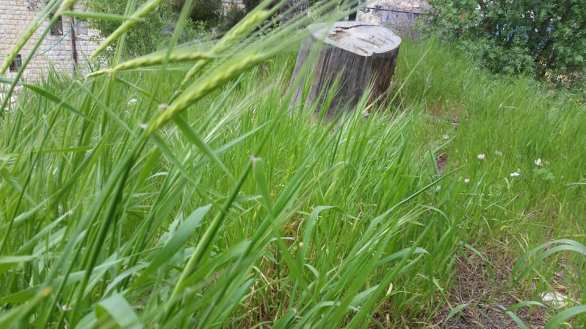I just got back from an absolutely fascinating and fantastic trip up North. The North is truly the most beautiful part of this Land. A place where mountains and hills, covered in green, soothe the city dweller’s soul. A place where mysticism, hospitality, and quiet evenings can almost make you feel like you’re living in different country.
My friend and I were visiting the city of Tsfat. Tsfat has been a center of Jewish mysticism and kabbalistic learning for 500 years. And its Jewish community has both Biblical and Medieval roots.
It’s a place where you can just feel spirit. Not because of any particularly grandiose buildings, but rather because of the air itself. Tsfat is a place you can’t see- it’s a place you feel.
As we were walking on top of a Crusader castle, we heard singing. Coming from below. We approached some sort of round opening in the ground and could hear it very clearly. It was niggunim- word-less Jewish melodies carried through the ages. And they were coming from inside the hill. I could make out the white shirts of men walking in a circle and singing.
I found a Haredi man and his family and asked if it was a synagogue in the mountain. He said no, it was a cave. And, being the consummate Israeli, ushered me over to him and took me to it. Something I truly love about this place.
We headed down the hill and I entered the dark cave with the old man. I found a circle of teenage boys holding hands, belting out the songs of my ancestors. I came to Tsfat seeking some respite from the city and some calm. And instead, I found God.
At a time when I had been feeling distant from Judaism and the concept of spirituality, I found something extraordinary. Without hesitation, the old man and I stepped into the circle and started singing.
The cave magnified our song as each yai dai dai bounced off the walls and meshed with the others.
Before I had started dancing, I asked the man if the kids were Hasidic. After all, Hasidim are known for their niggunim. The man said, “no, they are Litvaks”. Misnagdim. Lithuanians. Lithuanians- like me.
Suddenly I was no longer just singing beautiful Jewish melodies. I was holding the hands of my cousins. My family. Separated by oceans and traumas and the Holocaust, reunited in a cave in Tsfat. And just like the niggunim themselves, no words needed. You just feel the power and the love.
What’s so extraordinary is that even though the Misnagdim and I come from pretty radically different Jewish traditions, the power of Jewish music brought us together. Ashkenazi Jewish music has particular modes. It’s not by accident that many of our songs sound similar. So that even over a hundred years after our relatives were separated, we can reunite to the same sounds in a cave in the Land of Israel.
Feeling so moved that my face couldn’t help but smile non-stop for minutes afterwards, I headed out. As my friend and I and the Haredi family walked out of the cave, the old man did the appropriately Jewish thing and asked me a bunch of questions. Which, to his great pleasure, I answered in Yiddish. Who was I? Where was I from? Where were my ancestors from? What was my last name? And, as is the case in many places I visit here, “are you married?” When I told some Reform friends here I get asked that a lot, they laughed and couldn’t believe it. And it also shows that there are a lot more traditional people here that I manage to spend time with. Because I think I manage to get asked that question 3-4 times a day when I travel here, from Arabs and Jews alike.
When I told the man my last name was Adler, his eyes lit up. “Adler! You have a famous rabbi in your family! You don’t know? Oy, come to my house in Bnei Brak anytime- you are most welcome.” And he gave me his address. Because when people here invite you to something, they really mean it.
In Kabbalah, the Jewish mystical tradition, there is a concept of elevating sparks of holiness. For Jewish mystics, tikkun olam, or repairing the world, is not just about social justice (as it is usually seen in Reform Judaism), but rather about taking the profane, the mundane and making it whole again.
I’ve traditionally associated Hasidim, rather than Lithuanians, with Kabbalah and a kind of anarchic and unbridled mysticism. Yet Litvaks too have a relationship with this famous book. Long have I wondered if they sang niggunim and what they sounded like.
And now, at a 130-year-old delayed family reunion in the most mystical city of all, I now know.
Nice to meet you fam.
—
p.s. I was humming this Hasidic-inspired song all the way down the hill, if you want to take a listen.



One thought on “A family reunion with Haredim in a cave in Tsfat”